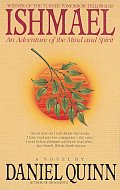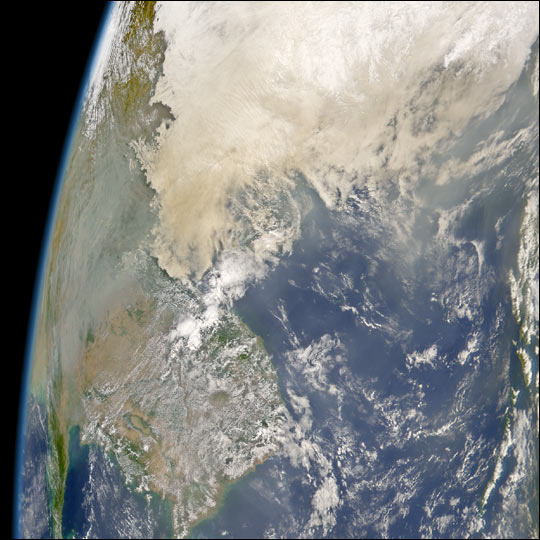I don't do book reviews
Books. I like 'em. I read a lot of them.
Often I recommend them to others. (Perhaps you noticed?)
Unfortunately I suspect my recommendations might be more effective if I could muster the willpower to write detailed, enthusiastic reviews. As much as I enjoy books, and as much I want others to appreciate the good ones, I greatly dislike writing book reviews. They remind me too much of book reports and school homework assignments.
Reading a book is fun. Writing about it takes time away from reading the next one.
As a kid in fourth grade I went on strike over book reports. I refused to write them. Specifically, I declined to participate in a classroom contest to try to write more book reports than the other kids. It seemed pretty clear to me that the contest was designed to get some (many?) of the kids to read more. The prospect of gold stars and smiley stickers on a wall chart (or the prize, whatever it was) didn't offer much incentive to me. I already averaged about four books checked out of the library at a time.
My civil disobedience prompted an emergency parent-teacher conference. Although I didn't exactly prevail, we did negotiate a concession: I agreed to stop setting an example of disobedience in exchange for the teacher's acknowledgement that the contest wasn't likely to advance my education. *
Now I have better incentive to write book reports reviews. I want other people to benefit from useful books as much I have. I want other people to read those books. But book reviews still feel like homework to me, and writing them does take time away from reading them.
Unfortunately the statement, “You should read this book because I say so”, doesn't seem to work very well.
I often think of books as tool boxes filled with idea tools. I have some background in engineering so that feels like a natural and obvious approach. For me, recommending a particular book is like recommending a particular tool for a particular task.
“Hi, there. I see you're pounding that nail with a brick. How's that workin' for ya? Have you considered a hammer instead? I just happen to have a hammer right here.”
Most models are wrong, but some are useful. Good books are full of ideas. Some of them are wrong, but some of them are useful. There are many I might recommend to a particular person in a particular situation. There are a few I recommend widely because they're especially versatile. These are my Swiss Army, Leatherman, toolbox-in-paperback, recommended books:
- Moral Politics: How Liberals and Conservatives Think, by George Lakoff
- The Fifth Discipline, by Peter Senge
- Ishmael, by Daniel Quinn
Each of those three is really a subset of the author's ideas. Each author has body of related work — more toolboxes filled with more tools — but those three are immediately useful.
I know I should say more, of course. But I'd rather be reading.
* I give my 4th grade teacher, the late Mrs. Harder, a lot of credit for her unusually candid admission.
anonyMoses comments that he sees connections between those authors. I'm pleased because I see connections, too. That's why those are three key pieces to this puzzle.
a useful book
Shoveling Fuel for a Runaway Train
Shoveling Fuel for a Runaway Train, by Brian Czech, is a quick and easily readable exploration of the assumptions underlying our nearly universal belief in “economic growth”.
Have you read this book?
Do you ever think about the role of economics in our lives?
updated
Ten significant books
Greensmile asked me to participate in a blog conversation about books that have been significant to me. He also asked whether the word “meme” comes from “Me me!” Susan Blackmore, who studies memes and writes extensively about them, might agree that it does, in a way.
A meme is an idea that spreads. That's my working definition, a model I find useful. It's an inexact copy of Susan Blackmore's definition. Meme ideas spread by imitation, by exact copying and inexact copying. Memes can be melodies, catch-phrases, stories, clothing fashions, and ways of making pots. Many memes spread unintentionally in the course of casual conversation and story-telling. Bloggers deliberately spread some memes as ways to inspire new posts.
I like this particular blog meme. It offers opportunities to think about books that influence our lives, such as:

1. One book that changed your life?
The Story of B, by Daniel Quinn.
Ishmael would have worked, too, but it was not on the library shelf that day. Both are entry points to a library of astonishing insights into our culture's operation.
2. One book you have read more than once?
The Shockwave Rider, by John Brunner. It was also the book that changed my life the first time, and one of many that created a context to understand and to value the ideas of Daniel Quinn, Peter Senge, and George Lakoff.
3. One book you would want on a desert island?
Some big, thick anthology of relatively recent literature, such as the one I bought for an American Lit class a couple of decades ago.
A number of meme writers already have mentioned practical books about desert island survival. I'll figure out the edible plants by cautious tasting. I'd rather share an indefinite future with e e cummings and Stephen Crane and Mark Twain.
4. One book that made you laugh?
The River Why, by David James Duncan. I'd quote some funny bits, but my copy is loaned out.
5. One book that made you cry?
That I don't remember distinctly. But this might be a good time to mention The Cider House Rules, by John Irving.
6. One book you wish had been written?
Initially I misread that as a book I wish I, personally, had written. And that would be Meet Me in the Moon Room, by Ray Vukcevich. I can't even describe how wonderfully Vukcevich writes, but this guy tries...
As for a book that should have been written by somebody, anybody, how about What If This New Way of Life Doesn't Work Out?, by Jared Diamond's great great 500-generations-ago great grandmother.
7. One book you wish had never had been written?
To mention it would be to spread its meme. Why dignify it?
Other meme writers have mentioned books that seem to inspire legions of readers to behave badly. We all know the adage about judging books by their covers. I do find some value in judging books by their readers.
8. One book you are currently reading?
(orginal response) I sometimes borrow a backpack full of books at one time from a nearby university library. The nonfiction ones I graze for good ideas. The fiction I read to be impressed by writing style, such as The Toughest Indian in the World, by Sherman Alexie.
Sherman Alexie has just published a new novel, Flight. I definitely plan to read it!
Currently reading Blindness, by Jose Saramago.
9. One book you have been meaning to read?
(orginal response) Tempered Radicals: How Everyday Leaders Inspire Change at Work, by Debra Meyerson.
I skimmed Meyerson's book. It looks good, and I'll read it thoroughly some day. I'm waiting for these to become available: Risk Society, by Ulrich Beck; and Destroying Dogma, a look at Vine Deloria's career.
10. Now tag five
some other people...
John Kessel, science fiction author and SF critic and NC State professor. He's not likely to see this, and his web site isn't really a blog, but memes are often inexact copies...
11. (These go to eleven.) What about Zen and the Art of Motorcycle Maintenance?
Indeed. Now we are enlightened.
Le Guin and Saramago
Two worth reading
We shall not cease from exploration
And the end of all our exploring
Will be to arrive where we started
And know the place for the first time.
![[image of Changing Planes book cover]](/graphics/ChangingPlanes_thumb.jpg) I've been planning
to recommend Ursula K. Le Guin's delightful book,
Changing Planes, since I
discovered it a few weeks ago. The reward for procrastination is an
opportunity to pair it with Jose Saramago's unusual book,
The Cave.
I've been planning
to recommend Ursula K. Le Guin's delightful book,
Changing Planes, since I
discovered it a few weeks ago. The reward for procrastination is an
opportunity to pair it with Jose Saramago's unusual book,
The Cave.
Changing Planes presents itself as a sly travelogue, a collection of short stories that describe some of the planes of existence a traveler can reach after experiencing the peculiar combination of stress, boredom, and indigestion that occurs only in a modern airport.
The book's back cover blurb observes that Le Guin's stories of exotic places and peoples all reflect the here and now of 21st century life. Most notable for me were the perpetually annoyed and squabbling people of Veks, the reckless genetic experiments on Islac, the thoughtful people of Ansarac who took some bad advice but abandoned it for their own time-tested wisdom, and the sad holiday island of Great Joy.
![[image of The Cave book cover]](/graphics/the_cave_small.jpg) While searching Le Guin's web site
for supplementary links I noticed her recommendation of Nobel prize-winner
Jose Saramago's books, Seeing,
Blindness, and
The Cave. The titles
Seeing and
Blindness caught my eye
because I've written a bit myself about
seeing and not seeing.
Saramago's writing style may challenge us, but readers who appreciate
William Faulkner's page-long streams of consciousness should be
equally comfortable with Saramago's technique.
What Saramago's charming characters discover deep within
The Cave is both disturbing
and liberating:
While searching Le Guin's web site
for supplementary links I noticed her recommendation of Nobel prize-winner
Jose Saramago's books, Seeing,
Blindness, and
The Cave. The titles
Seeing and
Blindness caught my eye
because I've written a bit myself about
seeing and not seeing.
Saramago's writing style may challenge us, but readers who appreciate
William Faulkner's page-long streams of consciousness should be
equally comfortable with Saramago's technique.
What Saramago's charming characters discover deep within
The Cave is both disturbing
and liberating:
“They are us!”
The Cave and other books by Jose Saramago are available from Powell's and from local bookstores
Read The Seasons of the Ansarac online at Infinite Matrix
Ursula K. Le Guin's web site is worth exploring
“We shall not cease from exploration...”
quoted from Four Quartets, by T.S. Eliot
Have you read these books?
Libraries are marvelous resources. They offer a no-risk way to evaluate books without the need to purchase and store them permanently. But when we know we want to keep a book permanently...
One simple way to improve the economy around us is to buy locally from an independent bookstore rather than a big-box chain store. Money spent at locally-owned businesses tends to stay within our communities where it directly benefits us and our neighbors. Money spent at chain stores tends to leave town quickly, never to be seen again. BookSense is an excellent web resource to help find books locally.
Unfortunately the BookSense web site is not such a good source of easily-linked book reviews. So I use Powell's instead. Powell's is not local to me, but it's independent and has a good reputation for supporting progressive and environmentally-responsible attitudes.
Three key pieces
- Moral Politics: How Liberals and Conservatives Think, by George Lakoff
- The Fifth Discipline, by Peter Senge
- Ishmael, by Daniel Quinn
A frame to hold those pieces:
Most models are wrong, but some are useful.
Anonymoses comments that he sees connections between those authors. I'm pleased because I see connections, too. That's why those are three key pieces to this puzzle.

 This work is licensed
under a Creative Commons Attribution-NonCommercial-ShareAlike2.5 License
This work is licensed
under a Creative Commons Attribution-NonCommercial-ShareAlike2.5 License
Join anonyMoses in commenting on this piece...